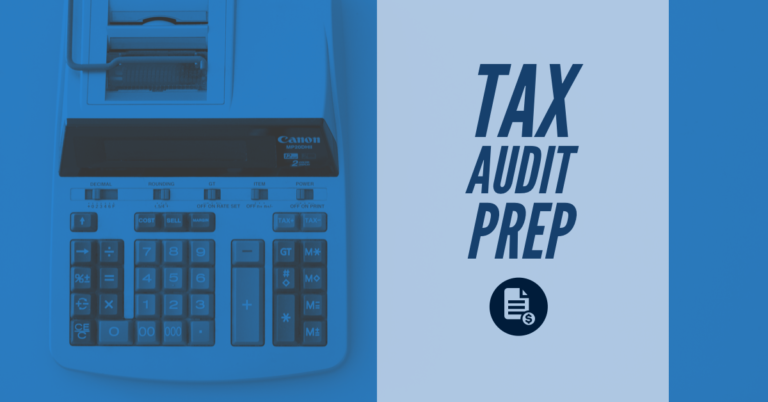Cannabis Audit Procedures Revealed in Confidential IRS Document
It’s been documented that the IRS looks closely at cannabis businesses. We’ll take a look at the insights available on what to expect during IRS cannabis audits.
A confidential IRS cannabis industry audit guide – identified by the IRS as a Participant Guide – was released to Marijuana Business Daily through a broader Freedom of Information Act request.
The 200+ page document, last revised in 2015, outlines how IRS agents should deal with Section 280E of the Internal Revenue Code and the cannabis businesses that it covers.
280E Federal Tax Challenges
For years, those of us in the cannabis tax industry have known that marijuana businesses are at high risk of being audited by the IRS.
Cannabis businesses are legal in many states, but are still illegal under federal law. The results in a challenging tax situation for federal income tax treatment as it relates to Section 280E, which disallows the deductions and credits that apply to most businesses.
Cannabis Audits Overview—Inside the IRS Agent Playbook
This IRS cannabis audit guide reveals the methods that agents use during an audit of your marijuana business.
Initial interview and tour
The IRS recommends agents obtain as much information in the initial interview. Agents are encouraged to take, or force, a tour of the business.
Indirect methods to gauge unreported income
Agents use methods like:
- Counting the number of grow lights to determine output
- Calculating the net worth of the owner over time
External databases
The IRS relies on external databases and records for insights into the cannabis business, including:
- Regulatory data from state governments
- Point-of-sale data from technology providers
- Power and water bills from utility companies
- Armored cash transporters
- ATMs within dispensaries
- Investor prospectuses
Source: Internal Revenue Service Training documents and Marijuana Business Daily.
What the IRS Doesn’t Want You to Know about Cannabis Audits
Here’s the highlights from the IRS Marijuana Participant Guide.
IRS Agents Target the Initial Interview
“The most effective audit technique for obtaining income information is the interview with the taxpayer,” the guide states. “As many taxpayers hire representation after the initial interview, it may be the only chance you have to talk directly with the taxpayer.”
IRS Agent Tour for Cannabis Audits
The Participant Guide also urges IRS agents to tour marijuana businesses to gather information, including signs of unreported income through what are known as “indirect methods” to prove unreported income.
The document informs IRS agents that actively touring a facility helps:
- Compute the amount of marijuana that could be produced from a grow facility based upon electricity usage.
- Provide knowledge of the square footage as used in the allocation of expenses between growing and retail using IRC 280E
- Perform a light count because the number of grow lights could be used as “a strong indicator of the amount of marijuana produced and sold.”
The guide further informs IRS agents that they can:
- Force companies to comply with requests to tour the business premises, with a writ of entry if need be.
- Fine business owners a fee up to $500 for refusing entry to IRS agents.
The IRS Expects an Adversarial Relationship with Cannabis Businesses
The booklet notes that cannabis business owners are frustrated with Section 280E of the Internal Revenue Code (IRC), which prohibits standard business deductions for any company that traffics in federally controlled substances.
The booklet begins, “Marijuana industry supporters rarely agree with proposed IRC 280E adjustments because they believe IRC 280E will soon no longer apply to the marijuana industry, perhaps sooner than the time it takes their case to work its way through an examination, then to appeals, and finally to tax court.”
Wrongly Classified Expenses in COGS
The marijuana Participant Guide makes it clear the IRS has tracked marijuana industry tax returns for:
- Wrongly classified expenses
- Expenditures such as wages in the cost of producing inventory – otherwise known as COGS – as a workaround for 280E.
The guide points out that it is “extremely important” for IRS agents to focus on costs of goods sold, since COGS is deductible for cannabis businesses, while many other expenses are not.
“Indirect Methods” Used in Cannabis Audits
According to Marijuana Business Daily, the IRS Participant Guide discusses “indirect methods” employed by IRS agents:
A provision in the federal tax code “provides that if no method of accounting has been regularly used by the taxpayer, or if the method used does not clearly reflect income,” then indirect methods are acceptable and backed by legal precedents.
Indirect methods include:
- Analyzing electricity bills for indoor grows.
- Examining bank deposits and comparing them to cash expenditures.
- Comparing records related to sources of income with expenditures.
- Establishing a net worth for a business owner and calculating how much that changed based on various records.
In conclusion, the IRS considers in-person interviews to be a key aspect in determining how much actual income was gathered in cannabis businesses. These interviews often occur before the company has hired tax representation.
Get Prepared for IRS Cannabis Audits
In the past decade, the IRS has pursued targeted audits involving cannabis businesses, which discovered tens of millions in unpaid taxes. Industry experts believe that the IRS will continue targeting the industry until Congress acts to change 280E.
- Pay special attention to cash filings for Form 8300 as this is a focus of IRS audits
- Marijuana businesses can experience inconsistent audit experiences and different outcomes, depending on which auditor they get. The IRS has expanded agent training involving marijuana audit practices.
- Maintain documentation of all items to be reported on your taxes, including invoices, bills, cancelled checks, and receipts.
- If you are audited, make sure you have a competent accounting team; it is advisable to have a tax professional represent your audit case with the IRS. Your CPA firm is your advocate and is focused on the best outcome for you.
The easiest way to survive a tax audit is to be prepared in advance. Be aware of your risks for being audited, and plan ahead with tax advice and processes that support documentation. Ensure that your business is audit-ready and ready for scrutiny.
More Information
If you have questions, contact us to discuss your situation.
To check out our other articles on business topics, click here.

David Smith
David Smith helps businesses and individuals develop smart business practices for tax and accounting advantages as the president of Smith Patrick CPAs. He is involved in the cannabis industry in Missouri through MoCannTrade and other organizations, helping cannabis operators with their tax and accounting needs.
About Smith Patrick CPAs
Smith Patrick CPAs is a boutique, St. Louis-based, CPA firm dedicated to providing personal guidance on taxes, investment advice and financial service to forward-thinking businesses and financially active individuals. For over 30 years, our firm has focused on providing excellent service to business owners and high-net worth families across the country. Investment Advisory Services are offered through Wealth Management, LLC, a Registered Investment Advisor.





